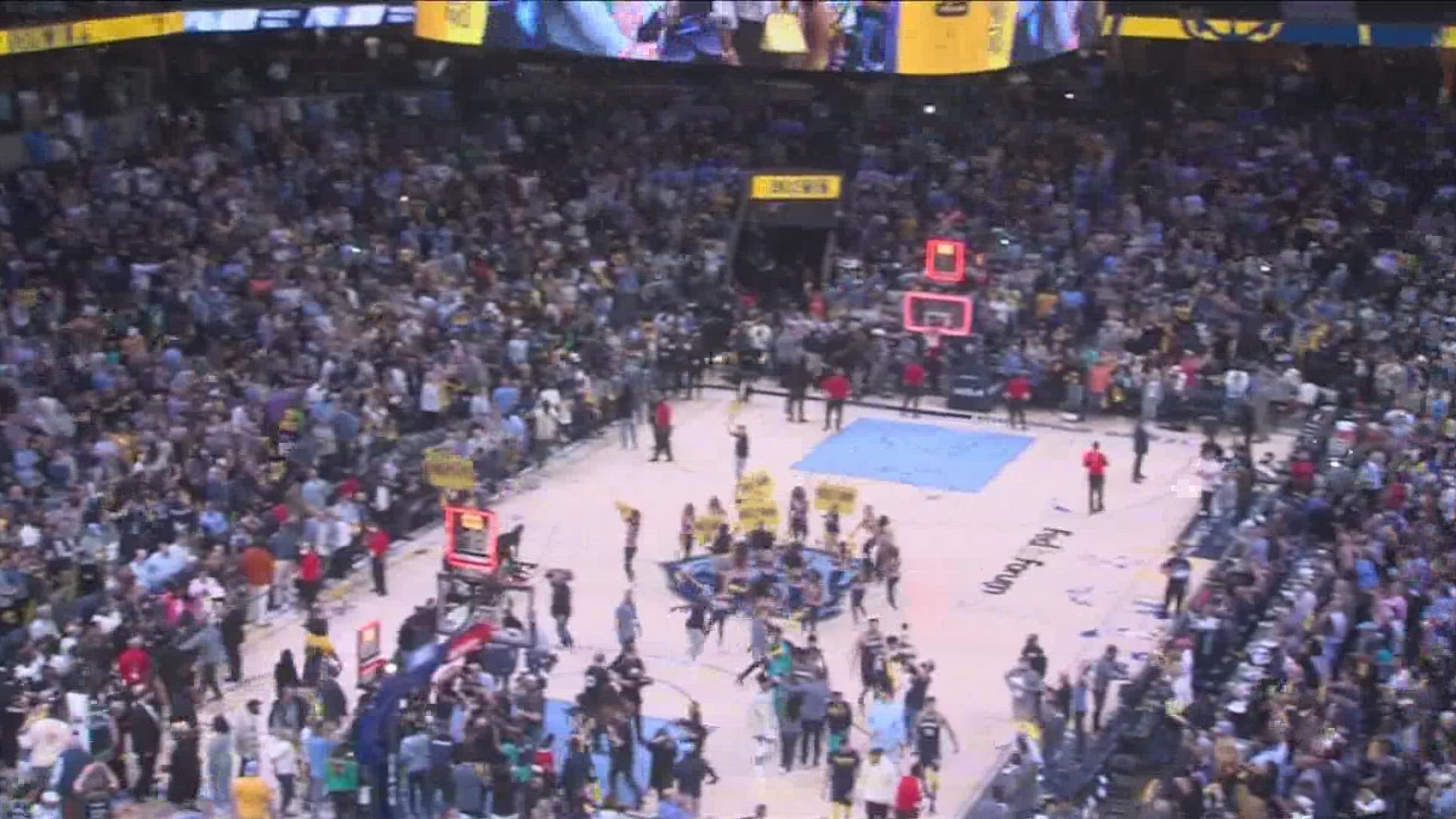MEMPHIS, Tenn — With the NBA Finals in full swing, you can forgive Memphis Grizzlies fans for hoping their team might soon bring the Finals to the Bluff City. Excitement surrounding the team today is a far cry from two decades ago when Memphis first took a shot at bringing the Grizzlies here.
Former Memphis Mayor Willie Herenton still beams with pride walking around FedExForum. The Home of the Grizzlies may be the biggest legacy of his 18 years in office.
“The kind of impact that I think brings about cohesiveness and unity in a city. And we knew winning the NBA franchise could do that for Memphis and that’s essentially what has happened,” Herenton told ABC 24’s Richard Ransom.
It’s said nothing brings Memphis together like basketball. And when you hear thousands of people, Black and white, singing “whoop that trick” it’s hard to disagree.
Daily Memphian sports columnist Geoff Calkins give Herenton his due. "You walk-in, it's beautiful. It's at exactly the right place, which is where Willie Herenton knew it should be and I give him credit for that," he said. "I think the Grizzlies have re-shaped how Memphians think of themselves."
Memphis was considered a long shot when billionaire Michael Heisley said he wanted to move his NBA franchise out of Vancouver. Las Vegas, St. Louis, New Orleans, Louisville and Buffalo were among other cities at the time starting to put deals together.
Memphians would ask, ‘was Memphis being played again?’
The former mayor said he learned the prospects were real.
"We kind of got some inside information this was a serious opportunity."
So, Heisley, the self-made tough Chicago guy and Herenton, the former boxer turned politician, quickly found mutual respect. "We hit it off and he made it very clear to me. He said, 'Mr. Mayor, if you want my team, you've got to build me a $250 million, state of the art arena.' He said, 'that is the condition.'"
In other words, Heisley wanted taxpayers to not only pay for the building, but the Grizzlies would get complete control of the Forum, including all concert and concession revenues. A tall order for a city like Memphis, struggling with poverty that was then, and still remains, the smallest TV market in the NBA. A city that was just getting over being scorned by the NFL and victimized after building a pyramid arena that could never meet NBA standards.
"There is no way to overstate how many naysayers there were at the time," said Calkins. "First of all, Memphians didn't feel good about Memphis. That was the biggest thing. There was just this why would you want to move here? Literally, people said we don't want them to come because we think they'll leave."
But political and business leaders who believed in the NBA dream started what would be a months-long process. One of the biggest fish, FedEx, agreed to pay for naming rights.
"The deal wouldn't have happened without FedEx," Herenton said.
Business leaders from AutoZone’s Pitt Hyde, to promoter Fred Jones, to Nike’s Willie Gregory to developer, Billy Orgel, all stepping up. They backed a group called “NBA Now” – making bumper stickers and yard signs.
But the deal almost didn’t happen.
A well-financed opposition group was demanding voters get a chance to decide whether to publicly finance the arena. Thousands of citizens were not at all happy that Billionaire Heisley wouldn’t put any of his own skin in the game.
"Morally, I think they're right. I wish we didn't have to pay for these arenas. But if you want a team, you do," said Calkins.
In the end, it was believed a referendum would take too long and might not pass. So, there was no vote.
Finally, it looked like the deal was about done.
“We’d put everything together and we came to the 11th hour of negotiations,” Herenton said.
Then Herenton’s negotiating team called the Mayor.
"I get a call that says ‘Mayor you got to come down here. The deal is about to fall apart.’ I said, ‘what do you mean?’"
It was true. Heisley attorney Stan Meadows threw a last-minute curve ball demanding Memphis cover any of the team’s operating losses. In Vancouver, the Grizzlies were losing up to $40 million a year.
Herenton decides it’s time for a candid, one-on-one conversation.
"And I remember saying to Stan, ‘Stan, we want this team. My city deserves this team. But we're never going to agree to cover the losses. And before we agree to cover the losses, you can take this team and I told him where to shove it, ok?’"
That’s the point Herenton did what they say has to happen in any good negotiation. He walked away. Minutes later, he learned it was the right move.
"They knocked on the door and he said, ‘Mr. Mayor we have a deal. We understand.’"
Almost immediately, Memphis learned what it was like to be a “Major League” city, drafting players like Shane Battier. And even when the Grizzlies had lean years and weren’t winning like they are now, Memphians could drive downtown all season long and see storied franchises, not to mention the League’s best-known athletes, play ball.
Now, what many argue is the most fun team to watch in the NBA, with a superstar player, has this smallest of NBA cities smelling a chance at a championship.
"This team has really placed Memphis on the national landscape, and we knew it would do that," said Herenton.
The Memphis Grizzlies have until 2029 to negotiate a new lease and Calkins says taxpayers should brace themselves to pony-up as Oklahoma City and Indiana have recently learned. But Calkins also credits current owner, Robert Pera, for never even hinting at moving the team. Calkins expects the team will be in Memphis for decades to come.

